Sawasdee kha! Are you interested in being fully immersed in a new culture in an exotic land, and having an authentic cultural experience? I had this similar curiosity and making the decision to live with my host family in Thailand to teach English has been one of the best decisions I have ever made.
Teaching English in a homestay across the world doesn’t come without lessons and challenges along the way. Read on to pick up some tips on living with a host family in Thailand for a successful cultural adventure abroad!

Be Open-minded about the Culture and Customs
Before you start your journey abroad, keep in mind that not everything is going to be the same as what you’re accustomed to. For example, I quickly realized that Thais do not use the same bathroom procedures as we do. Some public areas have “western toilets,” while other areas have “squatter toilets.”
‘Squatter toilets’ require you to, well, squat. Basically there is a hole in the ground with a small pan/bowl around it. In addition to using the squatter toilets, many Thais do not use toilet paper. Instead, they use a “toilet hose” (I’m sure you can figure out what a toilet hose does).
It took a little bit of adjusting for me, and because I had an open mind, it didn’t take long for these “strange procedures” to become my new normal.
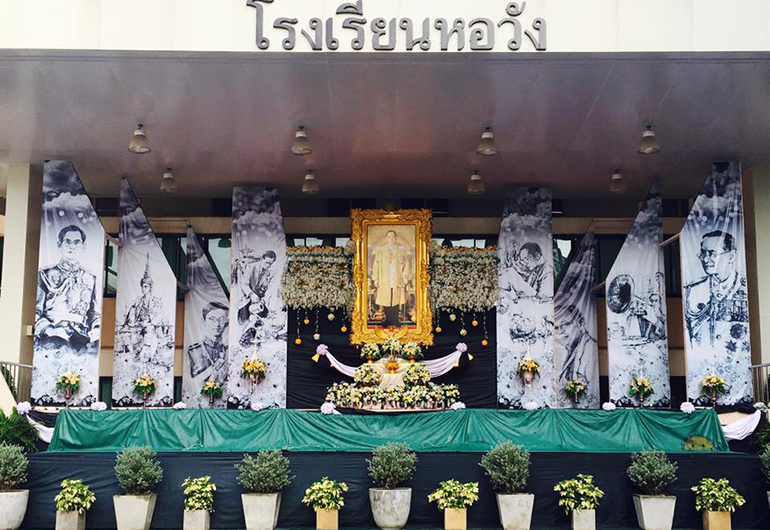
Here are some other Thai customs you may not be familiar with before arriving:
- The “wai” is the Thai greeting that consists of a slight bow with your hands pressed together as if you are praying (no shaking hands or high fives)
- Drivers drive on the opposite side of the street and use the steering wheel on the opposite side of the vehicle (if you are used to traffic operating on the right side of the road)
- Thais dress very conservatively and are often wearing full pants and a long-sleeved shirt (even when it is 90+ degrees Fahrenheit!)
- Breakfast is considered to be the largest and most important meal of the day and often consists of some type of meat or seafood, accompanied by rice, veggies, and sauce (this was new to me because I was used to eating a meal like that for dinner!)
- The King is highly commemorated throughout Thailand, and you will see his photo everywhere—altars, billboards, buildings, posters, temples, etc.
- Tuk Tuks are colorful, unique, forms of transportation (basically a three-wheeled, smaller version of a taxi); they can be a fun way to see the city, but also tend to be more expensive than a taximeter… So, beware of the price before you agree to get on one!
Although I’ve noticed differences between the American and Thai cultures, I’ve come to realize that everything the Thai people do is normal—normal to them. Make sure to open your mind and heart to different ways of life. It will make your learning experience even more valuable!
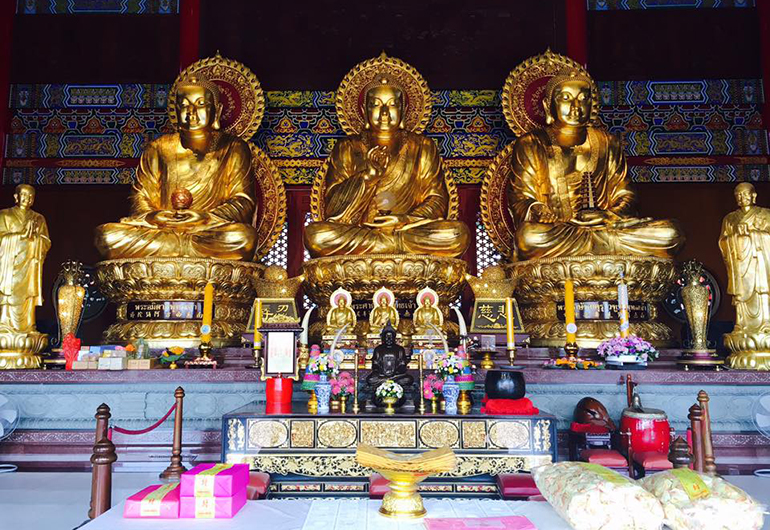
Learn a Few Basic Phrases Before Arriving
Learn about Thailand before going. While you will discover an immense amount about the day-to-day life while you are in your host country, it doesn’t hurt to learn a little about the language and culture before departure. Your Thai host family and locals will appreciate your background knowledge, and it will ease some of your stress while adjusting to the new culture!
Here are a few common phrases you will hear/use daily (Note: If you are a male, the word krap will follow everything you say. If you are a female, kha will follow what you say):
- Sawasdee krap (male); sawasdee kha (female) – hello and goodbye
- Khob khun krap (male); khob khun kha (female) – thank you
- Mai pen rai – don’t worry about it/you’re welcome
Reminder: Utilize the resources given to you by Greenheart Travel!
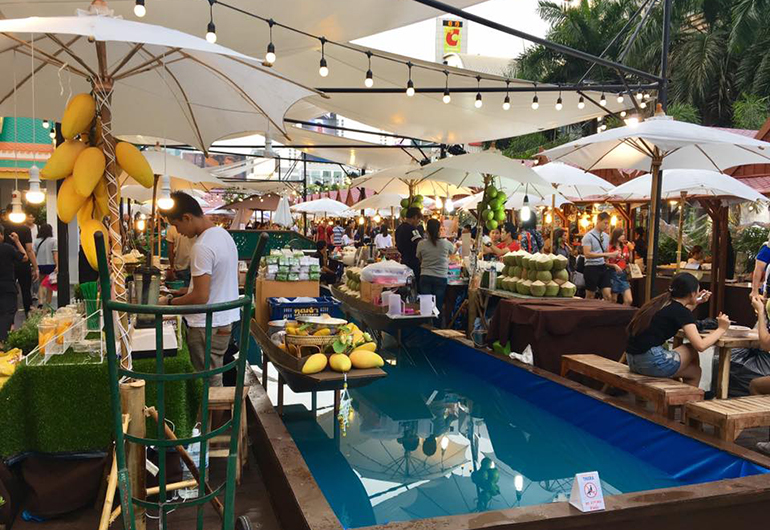
Pack Appropriately
My homestay program lasted only for one month, so I brought a carry-on luggage and a backpack. For me, that was the perfect amount of space to fit everything I needed. I am relieved that I didn’t over pack because who needs extra “stuff”?
If you are staying for a longer period of time, I’m sure you’ll want to bring checked luggage in addition to the carry-on and backpack. Then again, you will be allowed to do laundry with your family, so try to bring a lot of clothes that you can mix-and-match.
Like I said before, Thais dress very conservatively, so make sure you have a few pairs of pants/long skirts and long sleeve shirts (even if it is very hot and humid)!
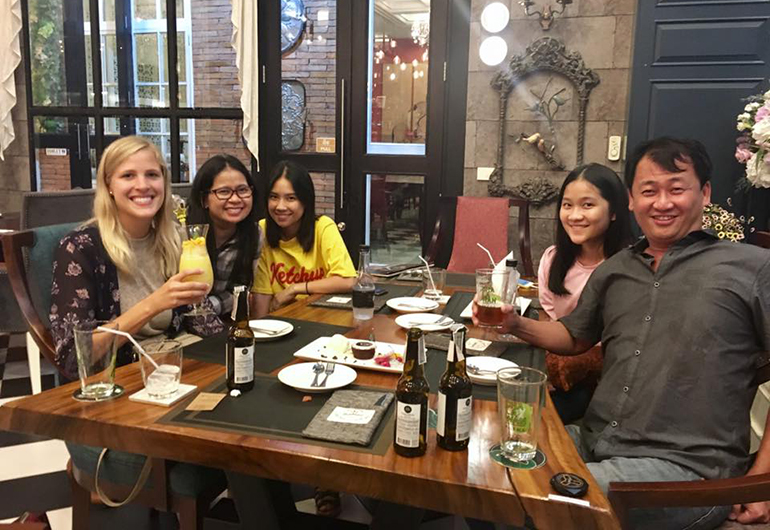
Communicate Clearly
Each host family experience is different, and each host family has a different level of competency in English. My host mom is very competent in English, but there were still times that we had difficulty understanding each other.
- If your host family doesn’t understand something you are trying to communicate, try to explain it in a different way
- Use different (simple) words, write it down, spell it out, or use hand gestures
- Remember, using verbal language isn’t the only way we can communicate
- Don’t forget about using your body language to try to show and not just tell
- You can also look up photos on your phone or use a translation app to support your explanation
- When communicating with someone who knows English as a second language, remember to be patient, understanding, and help them out
Another thing to remember is that all host families have different expectations for you. My host family preferred not to have official “tutoring lessons”. Rather, I was included in their daily routines and spoke with them in English on a regular basis.
Your family may just want to learn English from you in a conversational way, but here are some other ways you could incorporate language:
- Bring a simple deck of cards to play games that incorporate repetitive phrases or numbers
- Watch a movie in English with your host family and point to what you see on the screen to teach new vocabulary words
- Listen to music or teach simple songs to any host siblings you may have
- Bring something you can do together (make bracelets, color, do a craft, complete a puzzle) so you can spark natural conversation
- Ask questions about anything you see or do… Sometimes host families can feel nervous about initiating conversation with you, so help them out
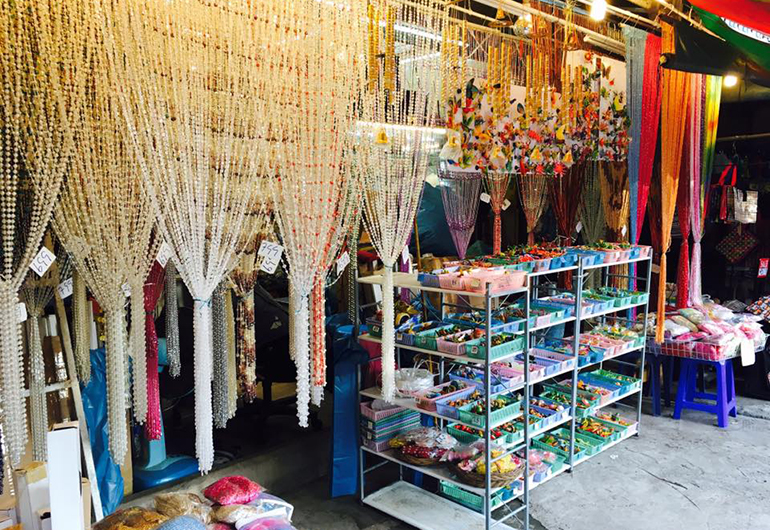
Expect a lot of Free Time
I am the type of person who always likes to keep busy. I like schedules, plans, and being on-the-move. With that said, I’m glad I planned for having a lot of free time. As you know, you will be teaching around 15 hours of English/week with your family. So, you will have a lot of unstructured time on your own. While exploring the area is a great way to occupy your time, realistically, you won’t be able to use all of your free time exploring.
With that being said, I brought a few items that really helped me out during my down time:
- Tennis shoes and iPod: These were two of my best friends living abroad! Almost daily, I went on a run. I’ve always been a runner, so bringing my running shoes was a no-brainer for me. During my run I was often able to clear my mind and process my experiences. Even if you aren’t a runner, go for a long walk or jog. Some extra exercise doesn’t hurt!
- Reading materials: Books in English are a little challenging to find in Thailand, so make sure to prepare ahead of time. I brought one chapter book from home, and had to buy three more here. Like I said, you will have free time, so if you like to read, bring books with you!
- Journal/Notebook/Coloring book: I packed a journal and I used it daily. Whether recording my experiences, making lists, or even doodling, I often spent time using my journal. I also bought an adult coloring book while here in Thailand. My host family laughed at me, but I explained how relaxing and calming the process is (plus, adult coloring books were quite the fad in the U.S. recently, so they should be easy to find)!
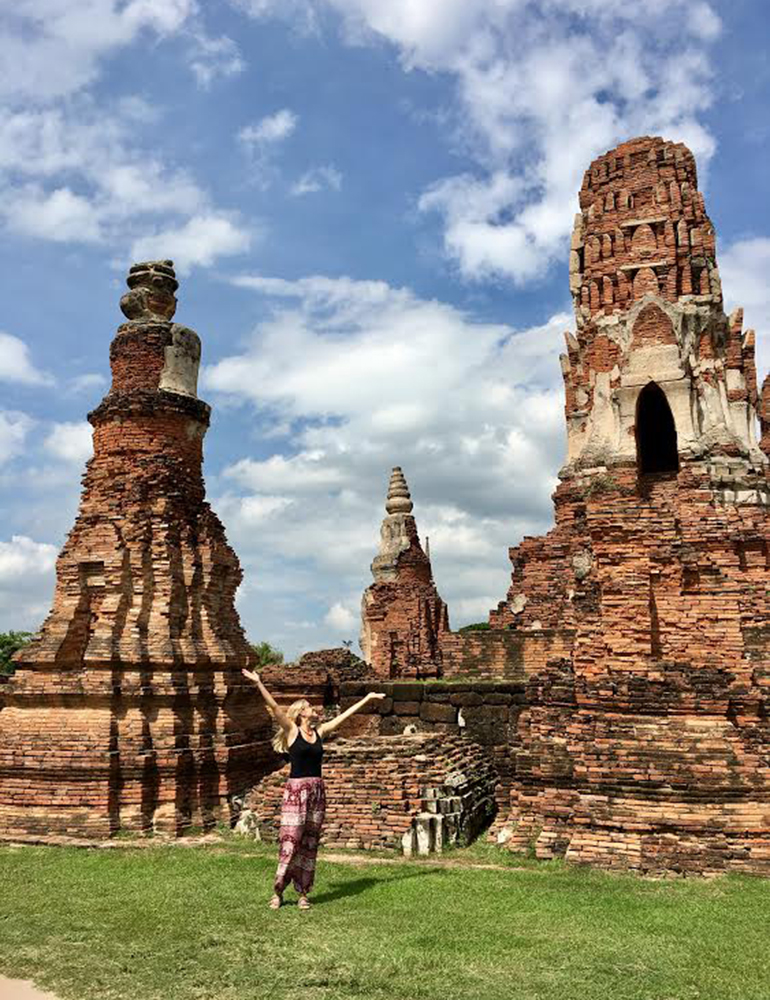
Have Reasonable Expectations
With social media these days (Instagram, Facebook, Snapchat, etc.), it’s easy to see a picture and want to recreate the moment you see in the photo. While social media undoubtedly has its advantages, it can also lead to unrealistic expectations.
My motto is: have no expectations.
Maybe you agree with that, maybe you don’t. The way I see it is that if I don’t have any expectations, I won’t be disappointed if I fail to meet them. I guess what I’m saying is, don’t expect every day to be like the photos you see online. You are in charge of your own experience abroad, and your expectations are what you make them!
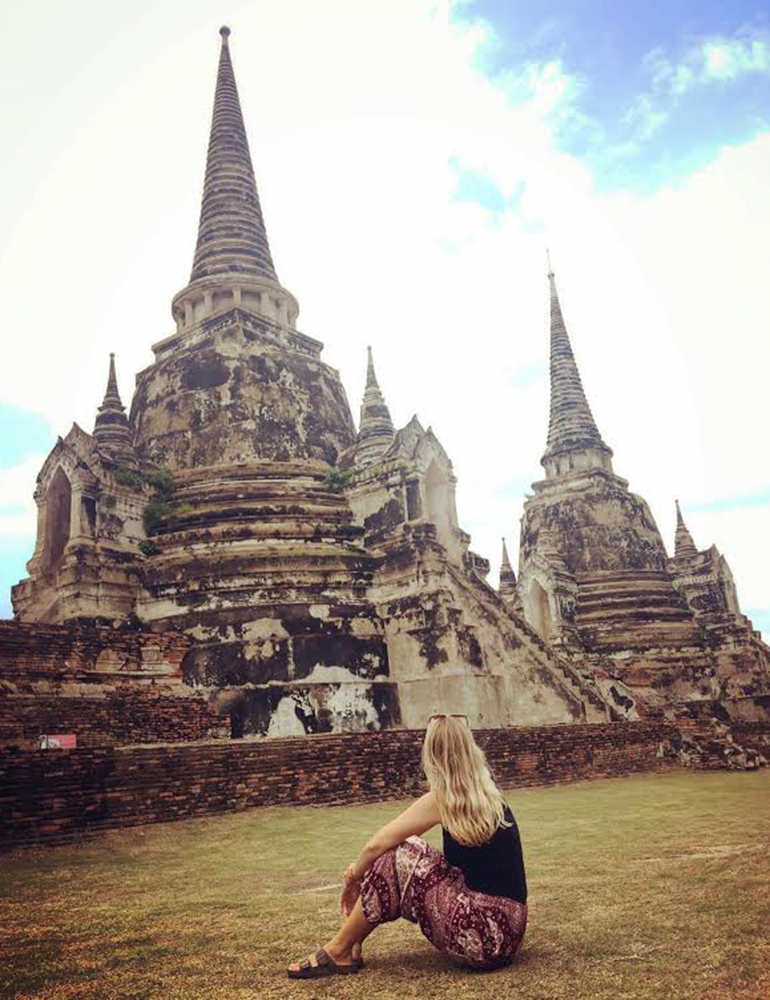
Document Your Experiences
Blog, write, take photos or videos. Do whatever you want, as long as you document your experiences! I felt like a typical tourist with my camera out, snapping pictures by the second, but I am so thankful to have photos that document my experience of a lifetime. Like I said, I also use a journal to record a lot of my experiences.

Take Advantage of Unique Opportunities
Your host family is there to help you, so let them! Remember, you are a guest in their household and in their home country. Your host family will be very proud to show you their land and culture.
My host mom created a one-month “program” in which she took me to different places, suggested new foods, and planned different cultural activities for me every day. Obviously, your experience will be different from mine, but take advantage of the opportunities around you.
Some of my favorite experiences were: volunteering at a local school, shopping at an array of markets, trying a variety of exotic foods, and visiting temples and ruins. By taking advantage of different opportunities with our host family, you will have an even richer experience!
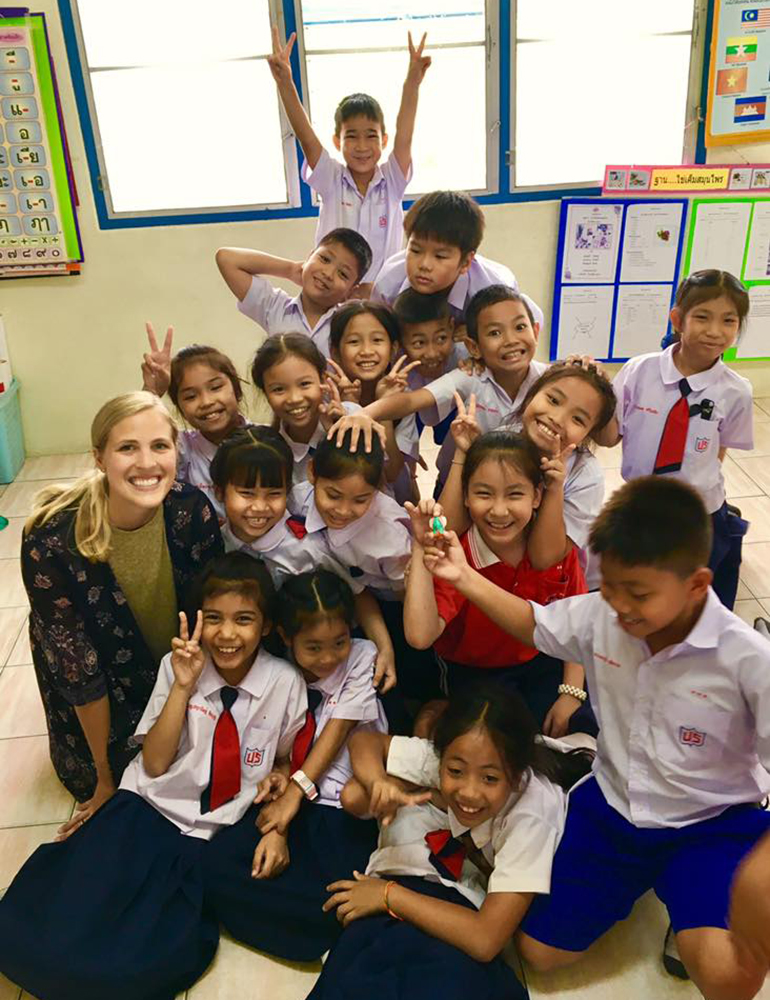
Finally, be thankful for the opportunity you have and enjoy the adventures you create for yourself!
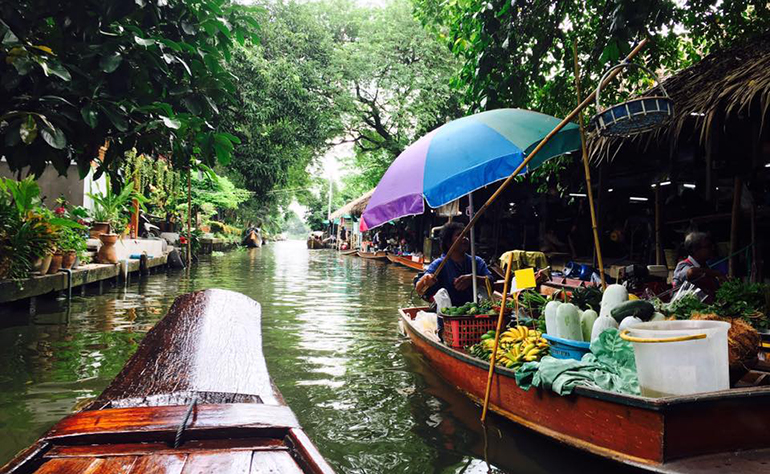
Most interesting, well written. Thank you